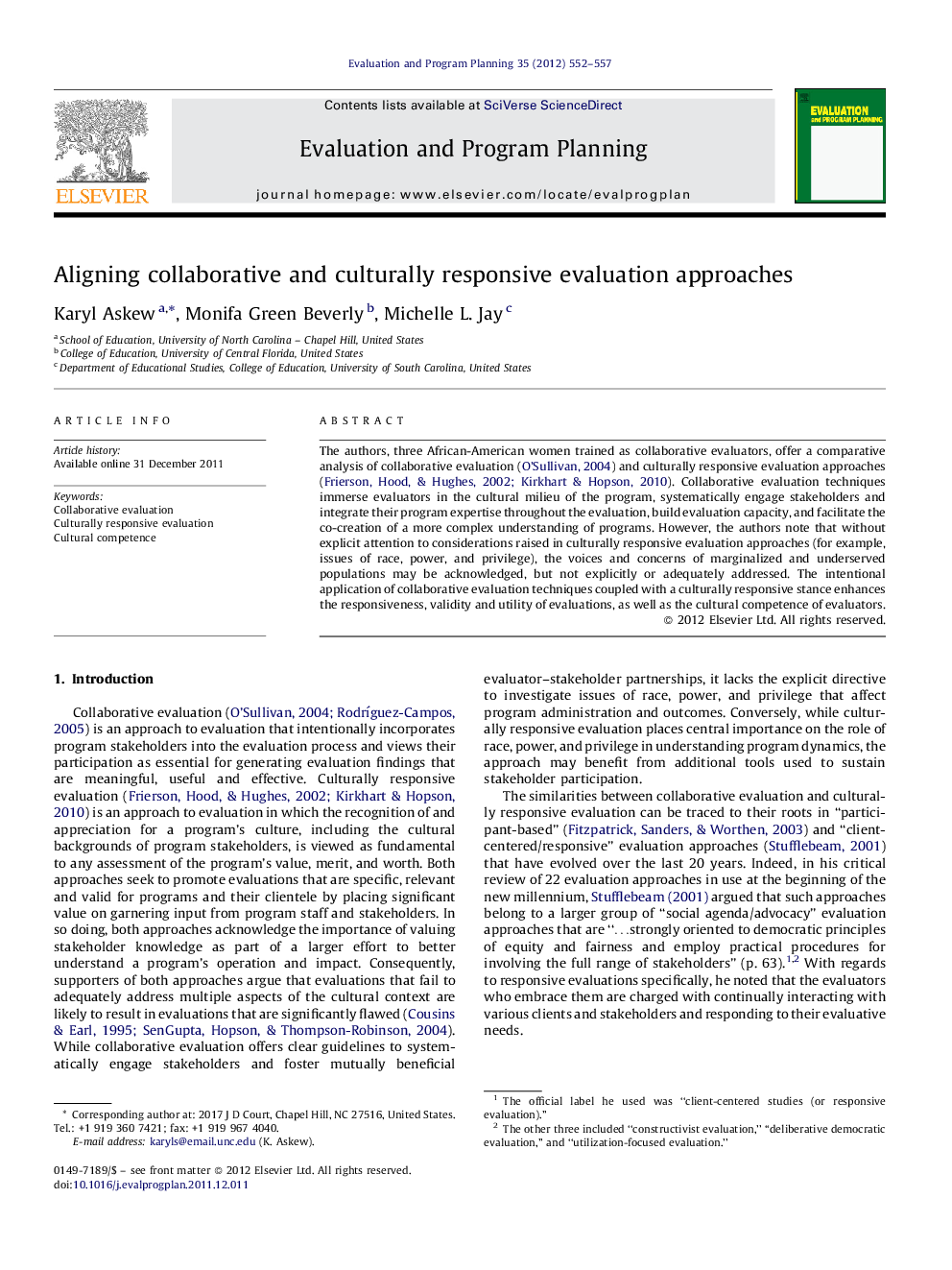| کد مقاله | کد نشریه | سال انتشار | مقاله انگلیسی | نسخه تمام متن |
|---|---|---|---|---|
| 322525 | 540079 | 2012 | 6 صفحه PDF | دانلود رایگان |

The authors, three African-American women trained as collaborative evaluators, offer a comparative analysis of collaborative evaluation (O'Sullivan, 2004) and culturally responsive evaluation approaches (Frierson et al., 2002 and Kirkhart and Hopson, 2010). Collaborative evaluation techniques immerse evaluators in the cultural milieu of the program, systematically engage stakeholders and integrate their program expertise throughout the evaluation, build evaluation capacity, and facilitate the co-creation of a more complex understanding of programs. However, the authors note that without explicit attention to considerations raised in culturally responsive evaluation approaches (for example, issues of race, power, and privilege), the voices and concerns of marginalized and underserved populations may be acknowledged, but not explicitly or adequately addressed. The intentional application of collaborative evaluation techniques coupled with a culturally responsive stance enhances the responsiveness, validity and utility of evaluations, as well as the cultural competence of evaluators.
Journal: Evaluation and Program Planning - Volume 35, Issue 4, November 2012, Pages 552–557